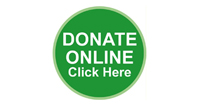

Freedom Center and USNUSP collaborate on "Human Rights for ALL" TourSubmitted by admin on Tue, 08/18/2009 - 17:13
I'm Leah Harris, co-coordinator of the U.S. Network of Users and Survivors of Psychiatry (USNUSP), a newly-formed network seeking to use the language, framework, and principles of international human rights to end violations against users and survivors of psychiatry and to promote voluntary and compassionate alternatives to the traditional mental health system. In June and July, USNUSP co-coordinator Daniel Hazen and I organized a "Human Rights for ALL" tour which was co-sponsored by many organizations include The Icarus Project, MindFreedom, CAFETY, and the Freedom Center. The tour was designed to raise awareness about human rights and particularly the Convention on the Rights of Persons with Disabilities (CRPD). The tour began in NY and Daniel traveled across the US to Philly, DC, Baltimore, Silver Spring, MD, Richmond, VA, Chicago, St. Louis, Topeka, KS and Denver, CO. A special thanks to Jeannette Swedishfish and others from the Mad Tea Party who hosted and supported in Chicago; and to Ashley and Bay Area Icarus for connecting us with AK Press to host the Oakland event and spreading the word. Sadly, a train crash kept Daniel from reaching Oakland, CA, the final stop on the tour, but otherwise the tour was a great success. It helped to establish new connections with users and survivors, disability rights and other allies and activists to get a dialogue going about the CRPD and how we can use the human rights framework as a powerful organizing tool. Personally, I was slow to understand the significance of the CRPD. I tend to be suspicious of all governments and big hierarchical bureaucratic structures like the UN...and I also initially felt that I had no real role to play in the development in the convention since I am not a human rights lawyer or international law specialist. For several years, my friends Tina, Celia, Myra, and many others from the US and international user/survivor movement were involved in the drafting of the convention language and the fight for inclusion of the issues of people who have experienced madness, distress, etc. The resulting document is truly one of the most radical ones I have seen, in terms of clearly protecting our human rights and expressing a vision of a society in which people of diverse abilities are honored, respected, and treated with decency and dignity. For so many of us who have been abused for so called "mental impairments" or "psychiatric disabilities" this is a huge huge victory. I appreciate and share the desire to move beyond disability language - I myself prefer the concept of diverse-ability and don't personally identify as a person with a disability, except perhaps short term disability from the effects of psych drugs and abusive psychiatric settings. The users and survivors of psychiatry who were involved in drafting the treaty keenly understood the limits of the word "disability" and knew that it might not resonate with all of us. They struggled to provide alternative ways of understanding our experiences, but unfortunately this did not make it into the convention language, other than the idea that disability is "an evolving concept." The Disability Convention is revolutionary in so many ways. It protects against forced treatment in ways that US law does not; and it clearly states that we are not to be subjected to torturous medical treatments or experimentation, (forced psychiatric treatment was clearly defined as torture by the UN Special Rapporteur on Torture). It also grants us full legal capacity over our lives (Article 12). According to the implementation manual written by members of the World Network of Users and Survivors of Psychiatry: "Article 12 is the most innovative and far-reaching provision in the Convention, and has a major significance for users and survivors of psychiatry. Instead of being treated as non-persons to be acted on by others, assistance will be offered in times of crisis, confusion or distress, which we have the right to accept or refuse." The Convention also clearly obligates professionals to tell us the truth about the "treatments" they want to give us (informed consent). In terms of more positive rights, the Convention outlines our right to live in the community, to participate in society, and the right to our freedom of expression in all ways. I could go on and on about how amazing the Convention is, and how its provisions can be used in consciousness-raising and organizing for rights and dignity for people with experiences of madness, crisis, emotional distress, etc. What I like overall about the Convention is that it gives us yet another powerful tool to get beyond the medical model and look at our issues through a social and political model, through the lens of rights and social justice. If you're interested in learning more about how to use the CRPD as a tool for activism, please visit our website at www.usnusp.org and check out the World Network of Users and Survivors of Psychiatry Implementation Manual at: http://www.wnusp.net/ We hope that this will be the beginning of more community organizing and dialogues around the Convention and human rights and look forward to future collaborations with Freedom Center and The Icarus Project. ( categories: )
|
|